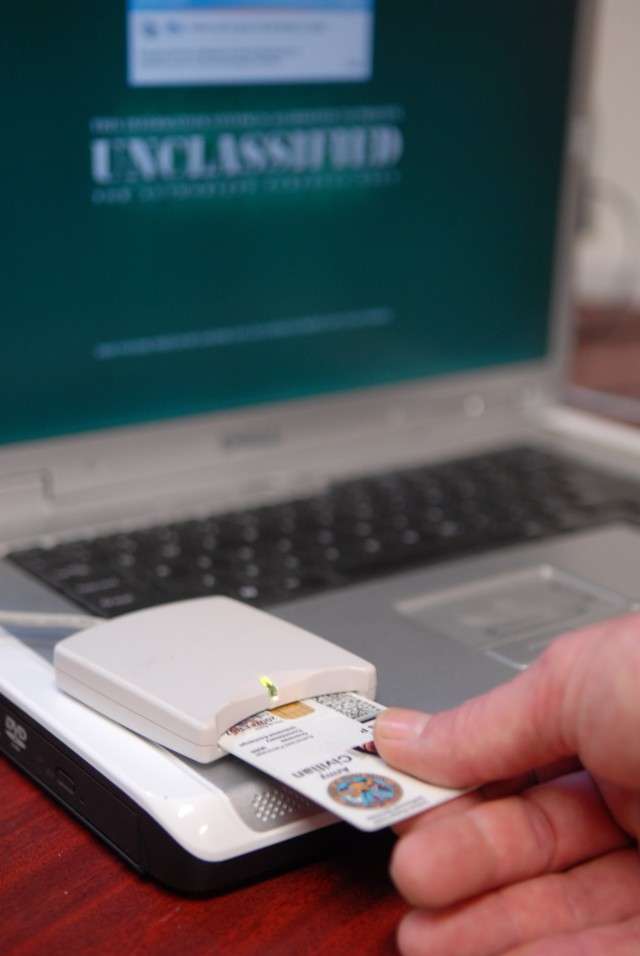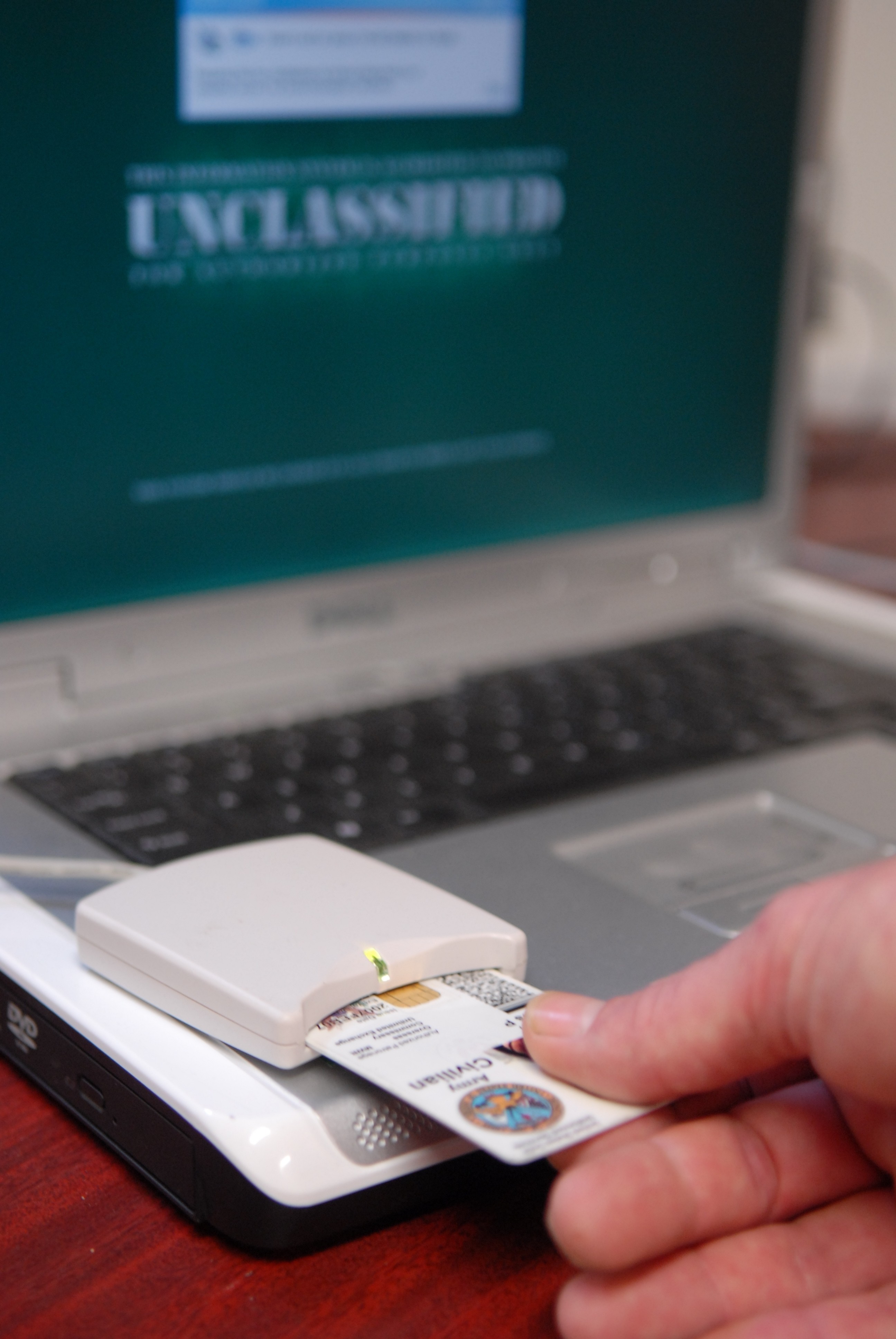MANNHEIM, Germany (Army News Service, Dec. 28, 2007) - U.S. military forces in Europe now have a better way to defend against cyber attacks aimed at destroying networks and infiltrating sensitive data.
According to Robert Hembrook, deputy chief of intelligence for the 5th Signal Command, cyber defense was already underway at the U.S. European Command in Stuttgart, but a cyber-threat intelligence cell was created here specifically to detect, monitor and combat malicious digital infiltrations on the military's computer networks.
"We are taking a pro-active approach to stop these 'hacktivists' from attacking our systems," he said.
The cell consists of three experienced intelligence and computer experts whose jobs are to observe potentially-harmful data passing from the internet into friendly networks, identify patterns of attacks, analyze data and advise network operators so they can ensure the safety and security of all U.S. military computer systems in the European footprint.
"The fact is that there are people currently trying to break into our systems in an effort to obtain data or plant viruses that put servicemembers and their missions at risk," said one of the cyber-cell members. "We simply cannot be vulnerable in this area."
The U.S. military increasingly relies on the speed and capabilities of computer-based technology to give it an edge on the battlefield, but this reliance gives the enemy a tool it can exploit.
"This cyber cell marks a change of approach in the intel world," a cyber-team member said. "We are already experts on predicting physical attacks from the enemy, but we never had a dedicated staff to predict and prevent virtual attacks at a theater level."
The cell is also involved with helping its military users prevent "digital fratricide" from the inside. For work and morale purposes, Department of Defense policy allows users filtered, monitored access to the World Wide Web on government computers. According to a cell member, this is to obtain business-related information and to visit non-work sites along as long as casual browsing does not affect mission success.
"It's a delicate relationship of balancing functionality and security," said a cell member. "We know many users can't do their job without computers and the internet, so we look for ways to help protect them."
Cell members leave their offices to actively engage and inform commanders and military communities of their findings, and stress the importance and relevance of the cyber battlefield.
One cell member said that their audience is the leadership in-theater because they can change how members of the DOD deal with and fight cyber threats.
"We have had nothing but positive feedback from commanders," said one cell member. "They are taking our reports seriously, and more and more they are seeing that threats to our systems can affect not only those sitting behind a desk, but also those on the front lines."
Since the 5th Signal Cyber Cell has shared its results with the intelligence community, other military organizations are asking how they too can have a cyber cell to find their own digital landmines.
"This is unprecedented at this level," said a cell member. "Members of the cell believe that network defensive measures should be implemented at all levels in the military because a computer's role is becoming just as vital as an M-16 rifle in terms of winning today's wars."
"As much as the military trains its own on weapon safety, we should be training them on computer and network safety," said a cell member. "That is where informing the leadership and giving them briefings becomes so vital."
(Kristopher Joseph works for the 5th Signal Command Public Affairs Office.)


Social Sharing